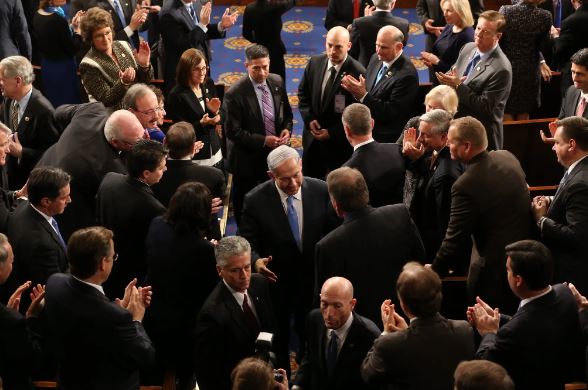When Prime Minister Benjamin Netanyahu of Israel addresses a joint session of Congress on Wednesday, he will encounter a deeply divided legislative body. Vice President Kamala Harris will not preside over the session, as is customary, due to a scheduling conflict. Many Democrats plan to boycott the address, reflecting their dissatisfaction with Netanyahu’s handling of the Israel-Hamas conflict in Gaza, which has drawn international criticism.
Netanyahu’s visit, which he described as an opportunity to reinforce bipartisan support for Israel, comes at a time of heightened tension and polarization in the U.S. Congress. Democrats are particularly divided, with some members, including prominent figures like Representative Alexandria Ocasio-Cortez of New York and Representative Rashida Tlaib of Michigan, expressing strong opposition to Netanyahu. Tlaib, the only Palestinian American in Congress, labeled Netanyahu a “war criminal” and criticized the decision to invite him to speak.
The discontent is not limited to House Democrats. In the Senate, notable figures such as Senator Richard J. Durbin of Illinois, the Senate’s No. 2 Democrat, and Senator Jeff Merkley of Oregon, plan to skip the speech. Senator Bernie Sanders, an independent from Vermont who caucuses with the Democrats, will also abstain. These absences highlight a growing unease within the Democratic Party about U.S. support for Netanyahu’s government, particularly in light of the ongoing humanitarian crisis in Gaza.
Netanyahu’s address also underscores the fraught nature of his relationship with U.S. Democrats. This tension is reminiscent of his 2015 speech to Congress, which he delivered at the invitation of Republican Speaker John Boehner, bypassing the Obama White House. That event saw a significant Democratic boycott, as many viewed Netanyahu’s opposition to the Iran nuclear deal as interference in U.S. foreign policy.
The current controversy is intensified by the broader political context. The Biden administration has faced challenges in managing U.S.-Israel relations, particularly as the conflict with Hamas has escalated. While President Biden and Vice President Harris are scheduled to meet with Netanyahu, their engagements are set against a backdrop of internal Democratic debate over the appropriate U.S. stance on Israel’s actions.
The speech is occurring at a time when Republicans, led by Speaker Mike Johnson, are eager to highlight divisions within the Democratic Party on this issue. Johnson has criticized Harris and other Democrats for their absence, framing it as a lack of support for a key U.S. ally. This narrative is part of a broader Republican strategy to use the Israel issue to drive a wedge within the Democratic Party, which is grappling with the differing perspectives of its progressive and more centrist members.
The controversy has also drawn the attention of former Israeli officials, who expressed concerns about the implications of Netanyahu’s U.S. visit. A group of over 30 former Israeli security and intelligence leaders, including ex-Mossad chief Tamir Pardo, warned that Netanyahu’s appearance could harm the U.S.-Israel relationship. They characterized Netanyahu as a leader “without a mandate,” facing significant legal challenges at home, and accused him of using the U.S. visit to bolster his domestic standing.
Despite the widespread unease, some Democrats have stressed the importance of maintaining strong U.S.-Israel relations, regardless of current disagreements with Netanyahu’s government. Representative Jared Moskowitz of Florida emphasized that supporting the state of Israel transcends any one leader or administration.
As Netanyahu prepares to address Congress, the event underscores the complexities and challenges facing U.S.-Israel relations, the deep divisions within American politics, and the evolving dynamics of international diplomacy. The reactions to his visit highlight both the strategic importance of the U.S.-Israel alliance and the contentious nature of current geopolitical debates.

